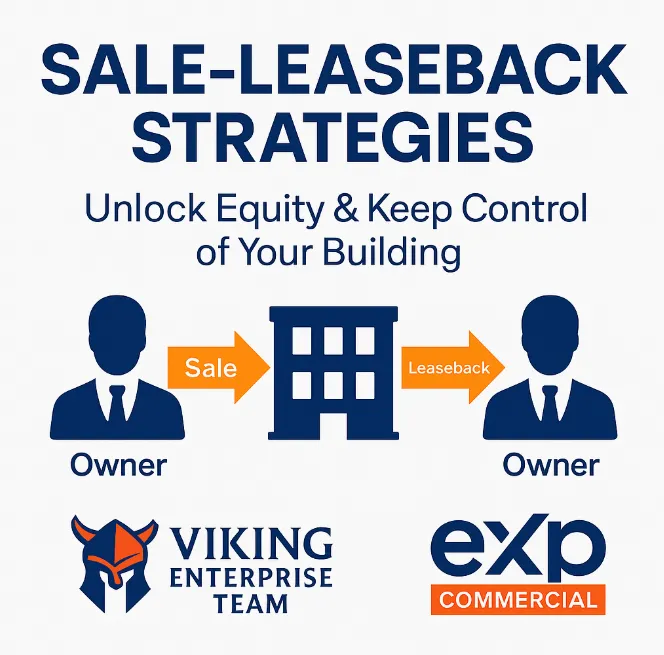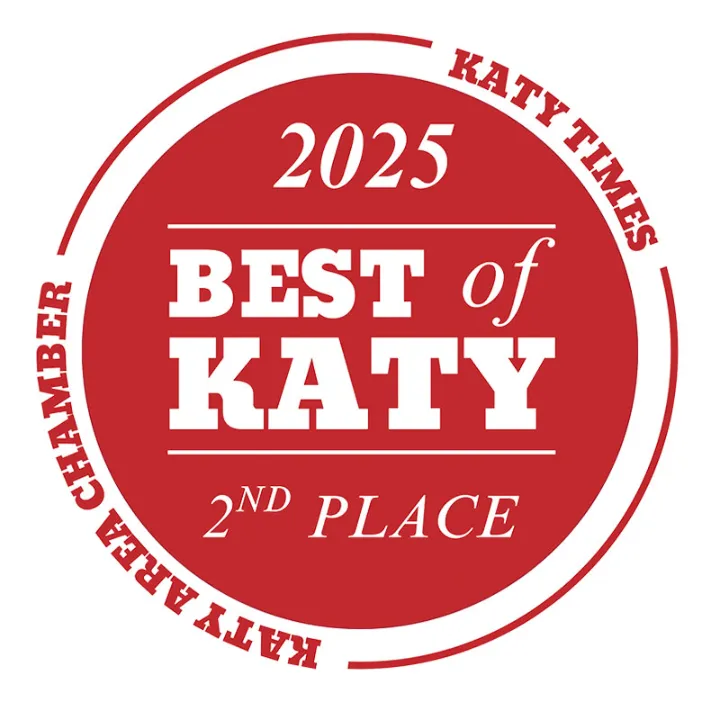Your Trusted Houston Commercial Real Estate Brokerage
Viking Enterprise LLC is part of eXp Commercial, an agent-led, cloud-based commercial real estate brokerage with agents across the globe.
Email: [email protected]
Call: (281) 222-0433
Your Trusted Katy / Fulshear & Houston Commercial Real Estate Brokerage
Viking Enterprise LLC is part of eXp Commercial, an agent-led, cloud-based commercial real estate brokerage with agents across the globe.
Looking to invest, buy, sell or lease? We can help.
Looking to invest, buy, sell or lease? We can help.
FEATURED PROPERTIES




OUR FEATURED TENANTS & CLIENTS
eXp Commercial - Viking Enterprise Team's real estate network provides unparalleled commercial real estate services to Tenants and Landlords around the Katy- Houston area. Our knowledge, experience, and reputation sets us apart from many firms.
A commercial property owner might have various plans that would necessitate the services of a commercial real estate broker. Some of the common scenarios include:
1. Selling the Property: If the owner decides it’s time to sell the property, a commercial real estate broker can help determine the market value, market the property effectively, and negotiate with potential buyers to get the best possible price.
2. Leasing Space: For property owners looking to lease out part or all of their commercial space, a broker can help find suitable tenants, negotiate lease terms, and ensure the lease agreements meet all legal requirements and serve the owner’s best interests.
3. Acquiring More Properties: Owners looking to expand their portfolio would benefit from a broker's knowledge of the market, access to listings, and negotiation skills to secure additional properties at favorable terms.
4. Property Management: While not all brokers offer this service, some commercial real estate brokers or their affiliates offer property management services. This can be particularly appealing for owners who prefer a hands-off approach or are managing properties from a distance.
5. Market Analysis: Owners considering future developments, renovations, or rebranding of their property might engage a broker for a comprehensive market analysis. This helps in understanding current market trends, the demand for different types of spaces, and potential returns on investment for various strategies.
6. Refinancing: In situations where a property owner is looking to refinance their property, a commercial real estate broker can provide valuable insights into the property’s current market value, assist in gathering necessary documentation, and even help in finding the best financing options.
7. Partnership or Investment Opportunities: Owners interested in exploring partnerships, joint ventures, or seeking investors for expansion or development projects might use a broker to find and vet potential partners or investors.
8. Consulting on Zoning and Use Changes: When contemplating a change in the use of the property or dealing with zoning issues, a broker with experience in local regulations and the specific property type can provide guidance and strategic planning assistance.
9. Exit Strategy Planning: For owners looking to plan an exit strategy from their investment, whether it’s through a strategic sale or a gradual winding down of operations, brokers can provide market insights, timing advice, and valuation services to optimize the exit process.
In any of these scenarios, the expertise and services provided by a commercial real estate broker can save the property owner time and money, while also providing access to a wider network of potential buyers, tenants, and industry professionals. Give us a call today!
Reviews

🚀 Unlock Capital & Grow Operations: How Sale-Leaseback Strategies Empower Business Owners 🚀
🚀 Unlock Capital & Grow Operations: How Sale-Leaseback Strategies Empower Business Owners 🚀
🏢 From Owner to Tenant: Sale-Leaseback Moves Every Business Owner & CRE Investor Should Know 🏢
Unlock Capital & Grow Operations: How Sale-Leaseback Strategies Empower Business Owners
In today’s commercial real estate environment—especially for business owners, owner-occupiers, and investors—the right structure can unlock value, improve liquidity, and set the stage for growth. One of the most under-utilized but highly strategic moves is the sale-leaseback. When properly executed, the sale-leaseback strategy can transform real estate assets into business fuel while preserving operational control.
What is a Sale-Leaseback?
A sale-leaseback occurs when a business owner sells a property (typically the real estate they own and occupy) to a third-party investor and simultaneously signs a long-term lease to remain on the premises. In essence, you shift from being owner to being tenant while freeing up the equity in your real estate. Investopedia+2Frost Brown Todd+2
For a business owner in Houston or nationally, this means converting a fixed, illiquid real-estate asset into deployable capital while keeping your location, operations and team intact.
Why Business Owners & CRE Investors Should Pay Attention
For business owners:
·Unlock hidden equity — Real estate may have appreciated significantly; selling it allows you to access that value now. Borgman Capital+1
·Reinvest for growth — The proceeds from a sale-leaseback can be deployed into higher return opportunities: equipment, market expansion, new technology, or debt reduction. OnDeck+1
·Improve balance-sheet flexibility — Instead of carrying real-estate assets and associated liabilities, you convert to a lease expense and can strengthen debt metrics. Doeren Mayhew+1
·Retain operational continuity — You remain in the space, so business disruption is minimized. This is a key benefit compared to relocating or selling and vacating. Frost Brown Todd+1
For CRE investors:
·Predictable, long-term cash flows — When structured with credit-worthy operating tenants and long leases (e.g., 10-20 years triple-net), these assets become stabilised investment plays. Blue Owl Private Wealth+1
·Dual collateral: tenant + property — The investor holds both the property and the lease with a strong tenant, which can enhance risk-adjusted returns. Blue Owl Private Wealth
Key Strategic Considerations for Business Owners
Before jumping in, business owners should evaluate:
1.Is the real estate core to your business or non-core? If property ownership is not central to your value creation (for instance, you’re a manufacturing business, not a landlord), monetising the asset could make sense. SLB Capital Advisors+1
2.Lease terms matter — Ensure the lease back is long enough to secure your operations, and that escalation terms, renewal options and tenant improvements are aligned with your business lifecycle. Blue Owl Private Wealth+1
3.Tax & accounting implications — Lease payments are typically fully deductible as a business expense, which can be more favourable than owning and depreciating real estate. But you’ll want to work with your CPA to handle the sale-gain, lease liabilities and any balance-sheet changes. OnDeck
4.Market timing and valuations — The best returns come when real-estate asset values are strong, and when the business can redeploy the capital at higher returns than the real-estate yield. SLB Capital Advisors+1
5.Partnering with the right investor/landlord — You’ll want a landlord who is aligned with your operational needs, supports expansions or upgrades, and allows flexibility for your business growth. As noted: “Retain control of real estate through a triple-net lease… Your business has full control of the real-estate through leasehold rights.” Borgman Capital
How to Structure a Powerful Sale-Leaseback Strategy
Here’s a step-by-step outline tailored for commercial property owners, investors and business operators:
·Step 1: Property Valuation & Real Estate Audit — Review your owned facility: location, condition, value appreciation, lease status (if any), and how core the space is to your operations.
·Step 2: Financial Modelling — Model scenarios where you sell the property, lease it back, and redeploy the proceeds into your business or investment. Compare projected returns, tax benefits, and balance-sheet improvements.
·Step 3: Lease Negotiation — As you negotiate the sale, ensure the leaseback has length (e.g., 10-20 years), rental escalation, options to renew, ability to expand or contract space if needed, and clear responsibilities for improvements/maintenance.
·Step 4: Legal & Tax Due Diligence — Work with your attorneys and tax advisors to ensure the transaction qualifies as a sale under accounting rules, identify any transfer taxes, evaluate the lease for off-balance-sheet treatment, and confirm tax deductibility of rent. Doeren Mayhew
·Step 5: Deployment of Proceeds — Decide how you’ll use the cash: paying down debt, funding expansion, investing in higher-return business lines, or accumulating a reserve. The goal: turn real-estate equity into strategic growth.
·Step 6: Investor/Buyer Selection — For your property buyer/landlord, vet their financial strength, alignment with your business needs, experience in triple-net leases (if applicable), and willingness to support your business through the lease term.
·Step 7: Ongoing Asset & Lease Management — After closing, treat your new tenant relationship and lease management like you would any other critical contract. Monitor your lease obligations, renewal options, and property condition to avoid surprises.
Real-World Scenarios & Use Cases
·A doctor-owner of a dental clinic who owns the building might execute a sale-leaseback to unlock capital for new equipment, expanding into another location, or hiring additional practitioners.
·A manufacturing business in Houston that owns its warehouse/distribution facility could sell the property and lease back to reinvest in automation, digital operations, or new markets.
·CRE investors looking for stable income streams might partner with operating businesses via sale-leasebacks, targeting strong tenants, long leases and triple-net structures.
Pros & Cons at a Glance
Benefit
Trade-off / Risk
Immediate cash infusion, improved liquidity
You give up property ownership and upside appreciation
Fully deductible lease payments for business
You commit to lease obligations long-term; business needs may change
Focus on operations vs. land-lording
You become a tenant; less control than owning
Attractive for exit or growth strategy
Market downward shifts could reduce property value (though you’ve crystallised gains)
Improves financial metrics, debt capacity
Need to ensure lease terms and investor are aligned
Why This Matters in 2025 for Houston & Beyond
Interest rates remain elevated, which makes traditional debt financing more expensive. Real estate values in many Texas markets (including the Houston area) present unique opportunities to monetise assets. A well-structured sale-leaseback allows businesses and occupiers to leverage their real estate while staying in place and continuing operations. For CRE professionals, investors, and business-owner operators in Houston, Katy, Fulshear and the broader West Houston corridor — this means you can craft creative strategies combining property, operations and capital deployment.
Final Thoughts
If you’re a business owner who owns your facility, or you’re working with one (as an investor, CPA, lender, or broker) the sale-leaseback strategy should be on your radar. It’s not just a transaction—it’s a strategic move. It allows you to:
·Free up capital previously locked in real estate
·Re-deploy that capital into your core business or higher-return opportunities
·Retain control of your operations and location via a leaseback
·Improve your financial flexibility and prepare for growth, exit or transformation
At Viking Enterprise Team (eXp Commercial), we specialize in aligning business, real estate and capital strategies for owners, investors and developers. If you’d like to explore whether a sale-leaseback is right for you—or your client—drop us a line. Let’s unlock your real estate value and fuel your next chapter.
https://www.houstonrealestatebrokerage.com/
https://www.houstonrealestatebrokerage.com/houston-cre-navigator
https://www.commercialexchange.com/agent/653bf5593e3a3e1dcec275a6
http://expressoffers.com/[email protected]
https://app.bullpenre.com/profile/1742476177701x437444415125976000
https://author.billrapponline.com/
https://www.amazon.com/dp/B0F32Z5BH2
https://veed.cello.so/FOmzTty6oi9
https://creplaybookseries.billrapponline.com
https://creplaybook.billrapponline.com/
© 2023-2024 Bill Rapp, Broker Associate, eXp Commercial Viking Enterprise Team
eXp Commercial - Viking Enterprise team real estate network provides unparalleled commercial real estate services to Tenants and Landlords around the greater Katy & Houston MSA area. Our knowledge, experience, and reputation sets us apart from many firms.
A commercial property owner might have various plans that would necessitate the services of a commercial real estate broker. Some of the common scenarios include:
1. Selling the Property: If the owner decides it’s time to sell the property, a commercial real estate broker can help determine the market value, market the property effectively, and negotiate with potential buyers to get the best possible price.
2. Leasing Space: For property owners looking to lease out part or all of their commercial space, a broker can help find suitable tenants, negotiate lease terms, and ensure the lease agreements meet all legal requirements and serve the owner’s best interests.
3. Acquiring More Properties: Owners looking to expand their portfolio would benefit from a broker's knowledge of the market, access to listings, and negotiation skills to secure additional properties at favorable terms.
4. Property Management: While not all brokers offer this service, some commercial real estate brokers or their affiliates offer property management services. This can be particularly appealing for owners who prefer a hands-off approach or are managing properties from a distance.
5. Market Analysis: Owners considering future developments, renovations, or rebranding of their property might engage a broker for a comprehensive market analysis. This helps in understanding current market trends, the demand for different types of spaces, and potential returns on investment for various strategies.
6. Refinancing: In situations where a property owner is looking to refinance their property, a commercial real estate broker can provide valuable insights into the property’s current market value, assist in gathering necessary documentation, and even help in finding the best financing options.
7. Partnership or Investment Opportunities: Owners interested in exploring partnerships, joint ventures, or seeking investors for expansion or development projects might use a broker to find and vet potential partners or investors.
8. Consulting on Zoning and Use Changes: When contemplating a change in the use of the property or dealing with zoning issues, a broker with experience in local regulations and the specific property type can provide guidance and strategic planning assistance.
9. Exit Strategy Planning: For owners looking to plan an exit strategy from their investment, whether it’s through a strategic sale or a gradual winding down of operations, brokers can provide market insights, timing advice, and valuation services to optimize the exit process.
In any of these scenarios, the expertise and services provided by a commercial real estate broker can save the property owner time and money, while also providing access to a wider network of potential buyers, tenants, and industry professionals. Give us a call today!

Find the perfect location for your business.
Let us help your business succeed.

🚀 Unlock Capital & Grow Operations: How Sale-Leaseback Strategies Empower Business Owners 🚀
🚀 Unlock Capital & Grow Operations: How Sale-Leaseback Strategies Empower Business Owners 🚀
🏢 From Owner to Tenant: Sale-Leaseback Moves Every Business Owner & CRE Investor Should Know 🏢
Unlock Capital & Grow Operations: How Sale-Leaseback Strategies Empower Business Owners
In today’s commercial real estate environment—especially for business owners, owner-occupiers, and investors—the right structure can unlock value, improve liquidity, and set the stage for growth. One of the most under-utilized but highly strategic moves is the sale-leaseback. When properly executed, the sale-leaseback strategy can transform real estate assets into business fuel while preserving operational control.
What is a Sale-Leaseback?
A sale-leaseback occurs when a business owner sells a property (typically the real estate they own and occupy) to a third-party investor and simultaneously signs a long-term lease to remain on the premises. In essence, you shift from being owner to being tenant while freeing up the equity in your real estate. Investopedia+2Frost Brown Todd+2
For a business owner in Houston or nationally, this means converting a fixed, illiquid real-estate asset into deployable capital while keeping your location, operations and team intact.
Why Business Owners & CRE Investors Should Pay Attention
For business owners:
·Unlock hidden equity — Real estate may have appreciated significantly; selling it allows you to access that value now. Borgman Capital+1
·Reinvest for growth — The proceeds from a sale-leaseback can be deployed into higher return opportunities: equipment, market expansion, new technology, or debt reduction. OnDeck+1
·Improve balance-sheet flexibility — Instead of carrying real-estate assets and associated liabilities, you convert to a lease expense and can strengthen debt metrics. Doeren Mayhew+1
·Retain operational continuity — You remain in the space, so business disruption is minimized. This is a key benefit compared to relocating or selling and vacating. Frost Brown Todd+1
For CRE investors:
·Predictable, long-term cash flows — When structured with credit-worthy operating tenants and long leases (e.g., 10-20 years triple-net), these assets become stabilised investment plays. Blue Owl Private Wealth+1
·Dual collateral: tenant + property — The investor holds both the property and the lease with a strong tenant, which can enhance risk-adjusted returns. Blue Owl Private Wealth
Key Strategic Considerations for Business Owners
Before jumping in, business owners should evaluate:
1.Is the real estate core to your business or non-core? If property ownership is not central to your value creation (for instance, you’re a manufacturing business, not a landlord), monetising the asset could make sense. SLB Capital Advisors+1
2.Lease terms matter — Ensure the lease back is long enough to secure your operations, and that escalation terms, renewal options and tenant improvements are aligned with your business lifecycle. Blue Owl Private Wealth+1
3.Tax & accounting implications — Lease payments are typically fully deductible as a business expense, which can be more favourable than owning and depreciating real estate. But you’ll want to work with your CPA to handle the sale-gain, lease liabilities and any balance-sheet changes. OnDeck
4.Market timing and valuations — The best returns come when real-estate asset values are strong, and when the business can redeploy the capital at higher returns than the real-estate yield. SLB Capital Advisors+1
5.Partnering with the right investor/landlord — You’ll want a landlord who is aligned with your operational needs, supports expansions or upgrades, and allows flexibility for your business growth. As noted: “Retain control of real estate through a triple-net lease… Your business has full control of the real-estate through leasehold rights.” Borgman Capital
How to Structure a Powerful Sale-Leaseback Strategy
Here’s a step-by-step outline tailored for commercial property owners, investors and business operators:
·Step 1: Property Valuation & Real Estate Audit — Review your owned facility: location, condition, value appreciation, lease status (if any), and how core the space is to your operations.
·Step 2: Financial Modelling — Model scenarios where you sell the property, lease it back, and redeploy the proceeds into your business or investment. Compare projected returns, tax benefits, and balance-sheet improvements.
·Step 3: Lease Negotiation — As you negotiate the sale, ensure the leaseback has length (e.g., 10-20 years), rental escalation, options to renew, ability to expand or contract space if needed, and clear responsibilities for improvements/maintenance.
·Step 4: Legal & Tax Due Diligence — Work with your attorneys and tax advisors to ensure the transaction qualifies as a sale under accounting rules, identify any transfer taxes, evaluate the lease for off-balance-sheet treatment, and confirm tax deductibility of rent. Doeren Mayhew
·Step 5: Deployment of Proceeds — Decide how you’ll use the cash: paying down debt, funding expansion, investing in higher-return business lines, or accumulating a reserve. The goal: turn real-estate equity into strategic growth.
·Step 6: Investor/Buyer Selection — For your property buyer/landlord, vet their financial strength, alignment with your business needs, experience in triple-net leases (if applicable), and willingness to support your business through the lease term.
·Step 7: Ongoing Asset & Lease Management — After closing, treat your new tenant relationship and lease management like you would any other critical contract. Monitor your lease obligations, renewal options, and property condition to avoid surprises.
Real-World Scenarios & Use Cases
·A doctor-owner of a dental clinic who owns the building might execute a sale-leaseback to unlock capital for new equipment, expanding into another location, or hiring additional practitioners.
·A manufacturing business in Houston that owns its warehouse/distribution facility could sell the property and lease back to reinvest in automation, digital operations, or new markets.
·CRE investors looking for stable income streams might partner with operating businesses via sale-leasebacks, targeting strong tenants, long leases and triple-net structures.
Pros & Cons at a Glance
Benefit
Trade-off / Risk
Immediate cash infusion, improved liquidity
You give up property ownership and upside appreciation
Fully deductible lease payments for business
You commit to lease obligations long-term; business needs may change
Focus on operations vs. land-lording
You become a tenant; less control than owning
Attractive for exit or growth strategy
Market downward shifts could reduce property value (though you’ve crystallised gains)
Improves financial metrics, debt capacity
Need to ensure lease terms and investor are aligned
Why This Matters in 2025 for Houston & Beyond
Interest rates remain elevated, which makes traditional debt financing more expensive. Real estate values in many Texas markets (including the Houston area) present unique opportunities to monetise assets. A well-structured sale-leaseback allows businesses and occupiers to leverage their real estate while staying in place and continuing operations. For CRE professionals, investors, and business-owner operators in Houston, Katy, Fulshear and the broader West Houston corridor — this means you can craft creative strategies combining property, operations and capital deployment.
Final Thoughts
If you’re a business owner who owns your facility, or you’re working with one (as an investor, CPA, lender, or broker) the sale-leaseback strategy should be on your radar. It’s not just a transaction—it’s a strategic move. It allows you to:
·Free up capital previously locked in real estate
·Re-deploy that capital into your core business or higher-return opportunities
·Retain control of your operations and location via a leaseback
·Improve your financial flexibility and prepare for growth, exit or transformation
At Viking Enterprise Team (eXp Commercial), we specialize in aligning business, real estate and capital strategies for owners, investors and developers. If you’d like to explore whether a sale-leaseback is right for you—or your client—drop us a line. Let’s unlock your real estate value and fuel your next chapter.
https://www.houstonrealestatebrokerage.com/
https://www.houstonrealestatebrokerage.com/houston-cre-navigator
https://www.commercialexchange.com/agent/653bf5593e3a3e1dcec275a6
http://expressoffers.com/[email protected]
https://app.bullpenre.com/profile/1742476177701x437444415125976000
https://author.billrapponline.com/
https://www.amazon.com/dp/B0F32Z5BH2
https://veed.cello.so/FOmzTty6oi9
https://creplaybookseries.billrapponline.com
https://creplaybook.billrapponline.com/
© 2023-2024 Bill Rapp, Broker Associate, eXp Commercial Viking Enterprise Team
Find the perfect location for your business.
Let us help your business succeed.
9600 Great Hills Trail, Suite 150w Austin, TX 78759 |
855.450.0324 xx255
Texas Real Estate Commission Consumer Protection Notice Texas Real Estate Commission
Information About Brokerage Services eXp Commercial LLC #9010212
Viking Enterprise LLC #9009614

Sign up to receive the latest news on property investment and commercial real estate listings.
Contact Us
901 S Mopac Expwy, Bldg 2, Suite 350 Austin, TX 78746 | 512.474.5557Texas Real Estate Commission
Consumer Protection Notice Texas Real Estate Commission Information About Brokerage Services Reliance Retail, LLC #603091
Texas RS, LLC #9003193 | RESOLUT RE Is Licensed In Louisiana #0995694083


Facebook
Instagram
X
LinkedIn
Youtube
TikTok